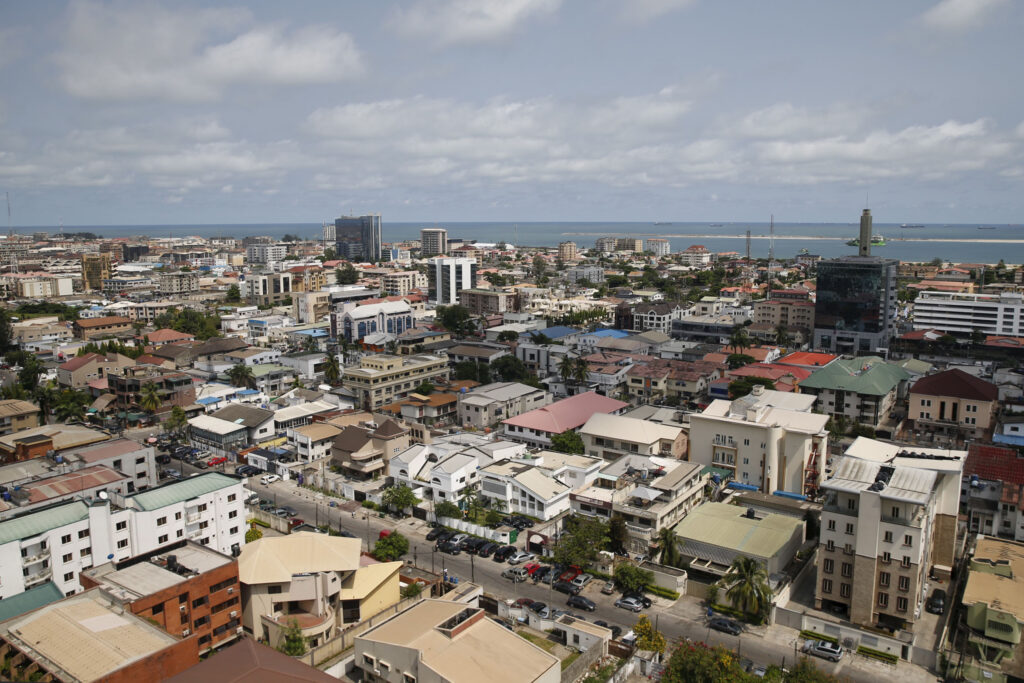By Ope Adetayo
Favour Irabor, a 22-year old university student, lives with her mother and siblings in a church facility in Mushin, one of the most crowded areas of Lagos, Nigeria. The arrangement was only meant to last a few months, the time it would take to secure a more permanent apartment on Lagos mainland. But since they moved into the church in November 2019, their housing hunt has come up empty.
What they had thought would be a straightforward search instead led them down a rabbit hole of endless substandard and prohibitively expensive apartments. The family, who is under pressure to vacate the church facility for personal reasons, is nearing their wits’ end. Renting “in this part of Lagos is a means of exploitation, because I don’t understand why houses are very expensive,” Favour said.
Favour’s experience is not peculiar to her. Almost every house seeker in Lagos, the country’s economic capital where the cost of living is steeply rising, faces a glut of badly managed homes with prices that do not correlate with the conditions of the property.
“The excuse is that everything is now expensive, and that is the umbrella everyone is hiding under,” Moyinoluwa, 22, told Sahelien.com. Moyinoluwa works in an office at Lagos Island, the area of Lagos dominated by the city’s upper class and multinational business chains. She is currently looking to rent an apartment on the mainland due to the skyrocketing costs of housing and living.
Mutyhullahi Adesola, a trained real estate agent and a member of the National Institute of Estate Surveyors and Valuers (NIESV), blames the rising costs on Nigeria’s banking system. Most property owners rely on commercial loans with high interest rates to develop properties, pushing developers and landlords to charge tenants multiple years in advance.
“Banks give commercial rates for housing development, and if you take a commercial loan for developing a property, you cannot get your return until five to seven years. It is a long-term project for you to recoup your capital, and that is why some landlords take two to three years in advance. It should normally be monthly or every six months,” Adesola explained.
The advance for many single rooms in tenement houses—where the kitchen and bathroom are shared by everyone—is usually between 80,000 and 100,000 naira ($205 to $256), and for self-contained apartments and flats, the prices are much higher. This pricing makes most apartments beyond the reach of people with average income residing in Lagos. Nigeria’s minimum wage is 30,000 naira ($73).
Moyinoluwa said she has seen the prices of the same apartments shoot up even one month after she began searching for an apartment.
Beyond the economic crisis of the country, at the base of the seemingly irreversible hike is an informal system of housing agents.
The agents have percolated the housing ecosystem and made themselves inevitable middlemen between house seekers and property owners.

“They act like mini-gods”
Lagos is the commercial capital of Nigeria and home to an ever-burgeoning population of 20 million people. It is the densest state in Nigeria with a territorial land area of 351,861 hectares, making it the smallest state by size, yet the most populated in the country.
Since 2015, Nigeria’s economy has been in continuous decline featuring two economic recessions and a badly managed pandemic fallout. The crisis has a particularly crippling effect on city-dwellers grappling with an 18.7 percent inflation rate, which reflects in the costs of renting an apartment.
Getting a house typically involves an agent who has knowledge of available apartments in a particular location. An agent’s consultation fee for taking a house seeker to see a house ranges from 3,000 naira ($7.69) to 10,000 naira ($25.64) and could be higher in other areas like the Island. This fee is non-refundable, regardless of the conditions of the houses. And, according to Favour, there are other miscellaneous costs like fare and tips that a house seeker pays to an agent for their service.
Moyinoluwa argued that the agents are also responsible for the hike and the problems house-seekers face. “I think majority of our frustration comes from the agent and their insincerity,” Moyinoluwa said. “They know it is almost impossible to get a house without them, that is why they act like mini-gods.” Favour’s experience with agents has been unsavory, too. “I cannot count the number of agents that have helped us look for a house and it did not work out,” she said.
She met another one in January this year through a referral. After a tour of houses that did not meet her taste, he introduced her to his family house. A tenant would be moving out, but they needed some money to help her secure another apartment, the agent told her.
Favour agreed to pay 100,000 naira ($256.41) to the agent up front as part of the rent. Then weeks morphed into months, and the tenant did not move out of the apartment. Despite feeling assured that their frustrating search had ended, a tiny knot of anxiety began to grow in Favour. By April, the agent could not be traced and he had blocked both Favour and her mother from calling his line.
In May, Favour contacted someone who is in the military to threaten the agent. That, combined with the threat of media exposure, forced the agent to finally return her money.
Adesola believes the proliferation of untrained and unprofessional agents is a consequence of NIESV’s laxity in enforcing its regulations and the inability of its members to penetrate every location.
With regards to untrained informal agents, “the problem is part of a larger problem,” he told Sahelien.com. “They are not registered with the institute and not trained. But the attitude of let them be, let them enjoy their life—it is not only you in the country that leads to what we have now,” he added.
The institute says on its website that membership is “open to all Nigerians, and in certain cases to foreigners, who have obtained training in estate surveying and valuation and in the broad field of estate management at approved institutions both within and outside the country.”
Membership is based on academic qualifications and is voluntary, so unqualified agents are at large exploiting house seekers and are not bound by the institute’s regulations. In the bid to reform, NSIEV streamlined the agents into an affiliate association called Association of Estate Agents in Nigeria (AEAN).
The affiliation has not had any effect on the informal agency sector as AEAN only records “150+ Certified Agents” and “400+ Registered Agents” nationwide when there are hundreds of informal agents in Lagos alone. There are no regulations guiding the work of the agents, who work in an informal ecosystem.
Upon agreeing to take an apartment, an agent then demands their own commission which could be between 50,000 naira to 250,000 naira ($128.2 to $641) depending on the location and type of apartment. Landlords also work with agents to inflate the agent’s commission, so they can rent the apartment to their customers according to Moyinoluwa.
“You don’t know who is saying the truth and who is not. Some landlords also take part of the agency fee, the agents tell you it is not for them alone. It is a dirty game,” Moyinoluwa said. Favour reiterated this claim too. “Agent would exploit you and the landlords would exploit you,” she said.

